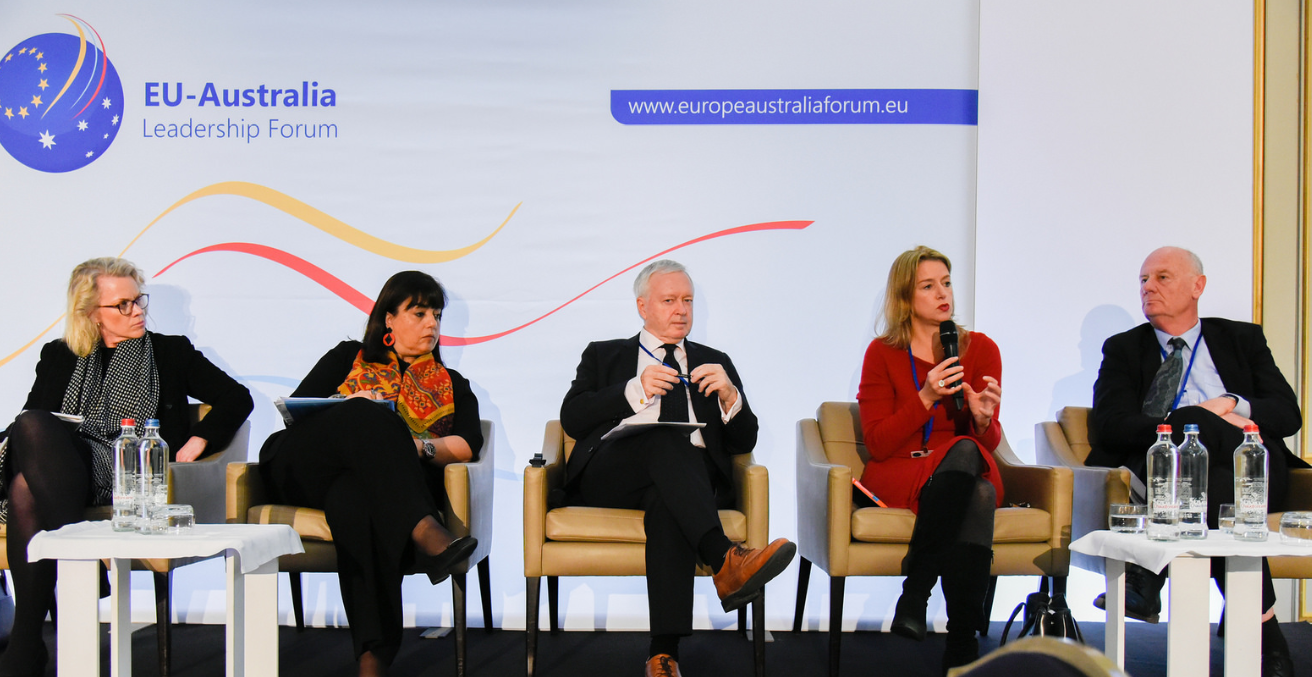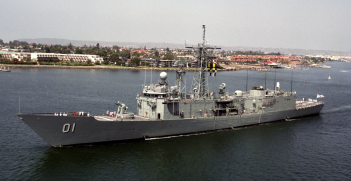The EU and Australia: Shared Interests, Shared Opportunities

Cooperation between the European Union and Australia has the potential to advance their shared interests.
Geographically the European Union and Australia lie at opposite poles of the world, and at first glance they seem quite disparate. Yet the two have many shared interests, shared values and most importantly, shared opportunities at this particular time in world affairs – going well beyond their large mutual trade and investment relationship.
Across the world, nationalism, protectionism and isolationism seem to be rising – trends that are both self-defeating and a distraction from the most urgent challenges the global community face. In fact, the much-discussed nationalist-globalist debate is a false dichotomy that misses the point that individual states, regional groups, cross-regional alliances and global institutions are all relevant and necessary if we are to address our most pressing tasks.
The EU is the outstanding model in the world of governments building the institutional architecture, and acting constructively and nimbly, on all of these levels – from the local to the global. Without that clever architecture, and without that agile engagement, we cannot successfully meet such critical issues as the urgent threat of climate change, the humanitarian impact of large-scale refugee flows, and the continuing need for sustainable development to reduce poverty in the least developed countries. All these priorities demand that those international actors strive for a bigger and clearer vision, stay the course of international cooperation, and intensify their efforts.
The inward-looking nationalist trend is not inevitable and we should be actively seeking to reverse it where possible. In the present global environment, I believe Australia and the EU have a common cause. We should, together and with like-minded countries, be demonstrating leadership for global engagement and cooperation. Most importantly, we do not just need a common voice, but should lead by example in practical actions.
The Pacific region is an important arena where the EU and Australia both have significant interests and presence. The Pacific countries are Australia’s nearest neighbours, while for Europeans they are far away. Yet Europe has close links with the Pacific – economic, cultural and constitutional – and the EU and its members constitute the Pacific’s third largest source of development assistance after Australia and Japan.
But the EU’s influence and contribution is not just monetary or quantitative, and not limited to official aid programs. The European contribution to aid in the Pacific is financially substantial, but its quality is just as important.
While not neglecting economic growth, the strong complementary focus on climate change, resilience and sustainability is most appropriate to the special conditions of this region. So also is the emphasis on gender equality and ending gender-based violence.
It is also important, especially for the small island states of the Pacific, that they are engaged with multiple partners and donors. The danger of total dependency or being captured as a client state by a single dominant patron is very real, and the European presence along with Australia and other OECD members, as well as emerging partners like China, is very helpful.
Beyond the regional dimension, Australia can also look to the EU on climate change policy and finance, and emissions reduction. Australian policy in this area has been notoriously erratic, prone to exploitation for short-term political gain and subject to sudden change as political winds blow. Australia’s position on reductions has been lukewarm and equivocal. Dismissal of IPCC views and casual assertions about being well on track to meet Paris commitments are unconvincing.
In recent years both Australia and Europe have had to deal with large migration flows and the plight of refugees. In fact, the direct impact for Australia has been much smaller, but in both cases the issue has been politically fraught and policy has failed to address the human needs. Yet despite the internal political pressures, many European leaders have stood up strongly against kneejerk anti-immigrant sentiment. Both in immigration policy and humanitarian action they have been prepared to make real commitments, even if it involves political risk.
For Australia, there is a clear lesson here: that political maturity and realism do not exclude compassion. But Europe’s experience also shows that dealing with the challenges of migration and refugees cannot be successfully achieved by unilateral action, quick fixes, draconian punishments and closed borders. Instead it shows the importance of genuine regional and crossregional cooperation around migration and refugees.
The stance I envisage for Australia is not necessarily a reflection of the Australian Government’s positions at present. But looking beyond the political predicament of a single moment in time, I believe it is a stance that both advances Australia’s own interest in a secure, sustainable and prosperous future for itself and its regions, and captures the potential contribution we can best make given our resources and strengths.
I see the European Union and its Member States as vital partners and valuable models in promoting such a positive agenda, with lasting benefits to its own people and the people of our own region.
Rev Tim Costello AO FAIIA is Chief Advocate of World Vision Australia, Executive Director of Micah Australia and a member of the EU Australia Leadership Forum Multi-Stakeholder Steering Committee.
This article was originally published in The EU and Australia: Towards a New Era, the official publication of the EU-Australia Leadership Forum 2018, which took place from 18-22 November. It is republished with permission.
The AIIA is part of the international consortium selected to deliver the EU-Australia Leadership Forum project, a three-year initiative funded by the EU. Click here for video highlights of the forum.





